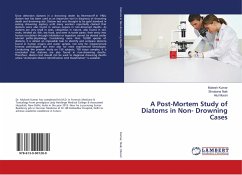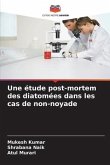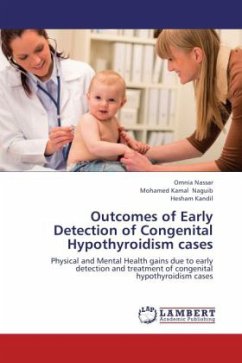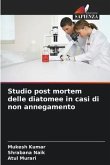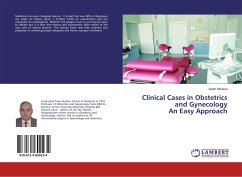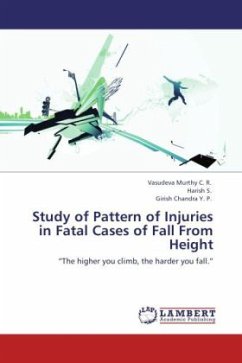Since detection diatoms in a drowning death by Revenstorff in 1904, diatom test has been used as an important tool in diagnosis of drowning death and drowning site. Diatom test was thought to be gold standard in solving drowning mystery until many workers reportedly claimed that diatoms were also found in various organs in non-drowned deaths. As diatoms are very small in sizes, ubiquitous in nature, also found in soil, rocks, inhaled air, fish, sea food, and even in tooth paste, their entry into human circulation through inhalation or ingestion cannot be denied under normal patho-physiology. Considering more than 10,000 species of diatoms, it is almost an impossible task to identify and compare diatoms found in human organs and water sample, not only for inexperienced forensic pathologists but even also for most experienced limnologist. Conducting the present study on 150 subjects, 750 tissue samples, it is concluded that diatoms are also found in non-drowning deaths. Therefore, diatom test should not be used to diagnose drowning deaths unless "Automatic Diatom Identification And Classification" is available.
Bitte wählen Sie Ihr Anliegen aus.
Rechnungen
Retourenschein anfordern
Bestellstatus
Storno

